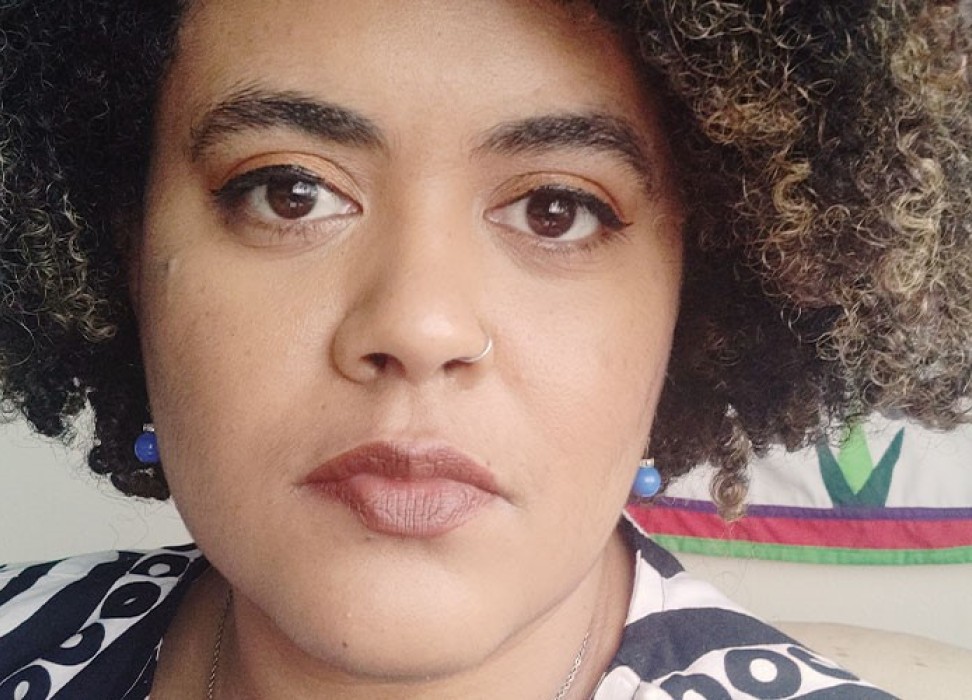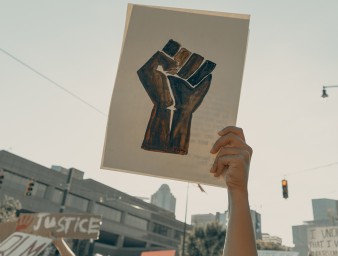Brazil: Fighting the double epidemic of racism and COVID-19
06 July 2020

As Brazil’s caseload of COVID-19 continues to rapidly escalate, so too does political and societal polarisation, and human rights concerns.
At the time of writing, Brazil had surpassed 1.5 million cases, and recorded over 60,000 deaths (source: World Health Organization). It is the second most affected country in the world, after the United States.
Dalila Negreiros is a young Brazilian activist and a former UN Human Rights Fellow of African Descent. Her organisation, Nosso Coletivo Negro do DF (Our Black Collective of Brasília), aims to promote affirmative actions for black students and workers, and to contribute to political discussions and decisions on strategies to fight racism.
For Dalila, racism in Brazil has exacerbated the consequences of the COVID-19 pandemic, and black people have been disproportionately affected. The challenges of fighting racism amidst such extreme circumstances have been enormous. She explains more.
How do you view the response to COVID-19 in Brazil?
When COVID-19 began to unfold in Brazil, we were waiting tosee what kind of action the government would take for Brazilian people of African descent. In our point of view, COVID-19 did not arrive in a vacuum. We already have huge racial inequality and problems, so we were hoping that the response of the government would consider our situation.
In a nutshell, it did not.
One of the main problems was and is the flow of information, with the federal and state governments communicating very differently. We are fed a lot of misinformation, and the Health Ministry and the Economic Ministry deliver conflicting messages. And then the President says something else.
People have to make their own decision whether or not to follow the guidelines. It is as if the authorities are asking people to decide if they have the right to live or not.
How has COVID-19 affected the black population in Brazil?
It has affected the black population exponentially. Black people in Brazil are less protected socially, and we are facing discrimination in different ways.
Regarding healthcare, black people in Brazil are concentrated in areas where there are fewer hospitals, and there is also a major difference in the quality of public and private healthcare. Public hospitals are overcrowded, yet private ones still have space. But many black people do not have the means to seek care in a private facility.
Government data on the pandemic is not accurate, so we still don’t know the full extent of the devastation. One recent study made by the Catholic University in Rio de Janeiro showed that black and poor people are three times more likely to die from COVID-19.
The informal employment sector in Brazil is vast, and the majority of it is comprised of black workers. Domestic workers for example have been enormously affected. So often, these workers have zero social protection, and there have been big lay-offs. They are left with nothing, and have nowhere to quarantine themselves.
The first woman to die in Rio De Janeiro, Cleonice Gonçalves, was actually a domestic worker infected by her employer.
There are also people working in crowded call centres for emergency services, too scared to say they are sick for fear of losing their job. And then there are street vendors or car washers and many other such occupations, all with no possibility to quarantine.
We’ve also experienced cases of police brutality resulting in death. In May, a young boy, João Pedro Mattos Pinto, was killed inside his house during the quarantine period. And black people continue to report being afraid of being arrested or even killed by police in the street if they are wearing a mask.
Thousands of homeless people are still waiting for action. The homeless population in Brazil is 70% black. Some of the states have provided shelters but crowding and sanitation are major issues. The federal government has promised financial aid for the population in need, but thousands are still waiting to receive their first payment.
What are your recommendations to the government to improve the situation?
My organisation and I are asking the government to work on a number of priorities: to provide unified information; to make reliable data available; to urgently improve access to proper water and sanitation; to provide safe shelters to the homeless; and to provide adequate social protection for informal workers so they too have the possibility to quarantine.
Do you see any examples of solidarity amidst the crisis?
So many people are doing amazing work. There are organisations giving financial aid to women who are living in favelas in big cities; there are people distributing food to people in vulnerable conditions; and organisations doing a lot to improve sanitation in poor communities.
Do you feel your fight against racial inequality is making any difference?
In the last 20 years, our biggest accomplishment of the fight against racism is that we have made Brazil acknowledge the need of implementing policies to combat racial inequality. But sadly, this system of ‘protection,’ which was by no means strong, has pretty much shut down now.
As the black population in Brazil, we still have to face police brutality, we still have to face inequality in many different ways. And now, hunger and poverty and COVID-19.
Nothing stops.
It's very terrifying. I feel particularly desperate, sometimes hopeless. But then I have to go back to history and to understanding that human rights is not an easy agenda. It came out of a lot of struggle, and even from the worst moments, we gather to think about alternatives and build utopias.
And we will keep on fighting.
Disclaimer: The views, information and opinions expressed in this article are those of the persons featured in the story and do not necessarily reflect the official policy or position of the Office of the UN High Commissioner for Human Rights.
6 July 2020


